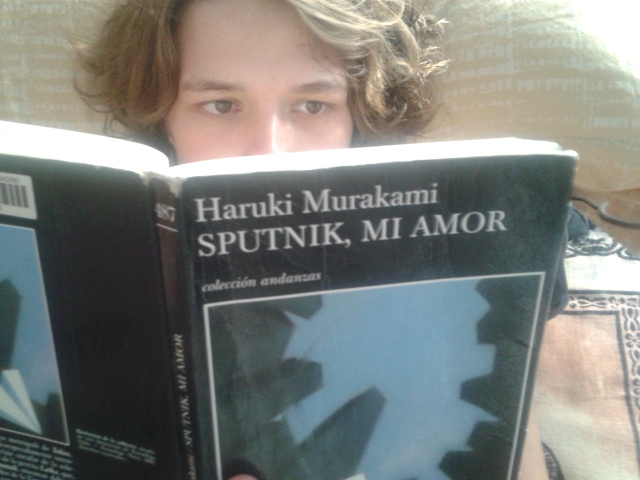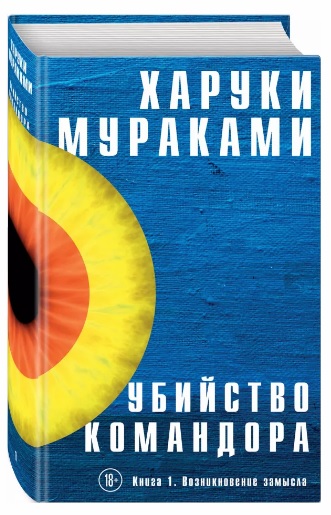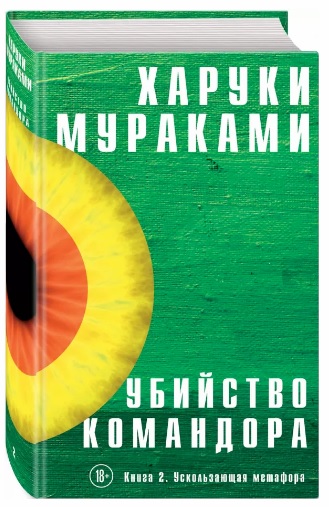Murakami is the last name, Haruki is the first name. But in Japanese, the last name precedes the first name, and therefore the order of the two elements is reversed. In any case, Haruki Murakami remains one of the few living writers capable of selling millions of copies a month and appearing every year among the candidates for the Nobel Prize in Literature.
for the 70th anniversary of the writer, the editors of the site "bestx.htgetrid.com/en/" prepared for you a review of the best books by Haruki Murakami in order to rediscover the fabulous and incredibly frank world of this author.

Who is Murakami?
He is a brilliant author, capable of presenting his vision of the world through characters and stories outside of the box. He speaks with great sensitivity to an audience that does not seek relaxation in reading but needs depth. His audience is able to go beyond the visible and the confidence in reality. Murakami is a "researcher" of souls, an inveterate hunter of the meaning of existence.

Almost nothing is known about his personal life. He was born in Kyoto in 1949, moved around the world, loves music (classical, jazz and rock), he has a huge collection of records (over ten thousand albums). In the 70s of the last century, he ran a bar in Tokyo, communication with clients which became a kind of "school of life" and subsequently inspired him on many subjects. Murakami traveled a lot, and then completely immigrated to the United States. He is actively involved in running, which is also reflected in his work.
In general, you can trace the life path of Murakami on the themes of his books. “What I am talking about when I talk about running” is an autobiography of one aspect of his personality: Murakami, a marathon runner, is recognized here. "Jazz Portraits" is a book about Murakami's passion for this music. In 1995, two tragic events took place in Japan: a powerful earthquake, as well as a terrorist attack, a sarin gas attack in the subway with members of the Aum Senrikyo sect. Murakami wrote about this in the works "Underground" and "The Promised Land", partly in the story "My Favorite Companion". To communicate with the affected people and write these dramatic works, he returned to Japan, where he still lives. He writes a lot about his homeland. Murakami himself noted that he understood a lot about the culture and mentality of the Japanese, living in other countries, he saw it from the sidelines.
Haruki is also a translator and essayist.
He has been married since 1971 and has no children.
He released his first novel, Listen to the Song of the Wind, in 1979 and immediately won an award for Best Newcomer. The following novels also received awards. So he decides to sell his jazz bar and devotes himself only to books. He has 14 novels, 12 collections of stories, 18 translations, documentary prose and other genres, and has made 5 films based on his books. Rewards are pouring in one after another. The Nobel Prize has not yet submitted to him, although he has been nominated many times.
Murakami is intense reading, even if it has simple and engaging language. The magical element is intertwined with Eastern philosophies and legends, leaving the feeling that a great revelation is about to open on the next page, or that a life lesson or great absolute truth will be decomposed into understandable components.Instead, you find yourself in even more confusing circumstances, where coincidences merge with prophecies completely disoriented, no longer distinguishing the true from the magic in the imaginations of the main characters. How to choose what to read from his books? Which book is the best?

The best books by Haruki Murakami
There are only five books in the proposed list of the entire set of works. What is special about them? These are the best, most famous, popular books, appreciated by literary figures. Many were published by the Russian publishing house Eksmo this year in large circulation in connection with the anniversary of the writer. The selection criteria for the rating were also reviews of fans of the genre on the network.
"Norwegian forest"

- Publisher: Eksmo;
- Year of publication: 2018;
- Number of pages: 368;
- Cover: hard;
- Average cost: 300 rubles.
Watanabe Toru, 37, arrives in Germany by plane. A few minutes after landing, the aircraft's speakers begin broadcasting the Beatles' song "Norwegian Forest." Watanabe is not feeling well, a strong melancholy and nostalgia forces him to remember the events and people that filled his youth, in particular the period from 1968 to 1970, when he studied at the university in Tokyo. Through a long flashback that includes the entire novel, Watanabe traces those years. Memory becomes concrete, it becomes a new reality that can be experienced through the eyes of reason and emotion.
One person immediately comes to mind: Naoko, a beautiful and dangerously fragile girl with whom Watanabe fell in love. She with signs of psychological discomfort, increasing gradually. But another girl, Midori, comes to mind. She is completely different from Naoko, she also suffered greatly mentally in her youthful existence, but she is much more alive, vital and free. Divided by the love between the two girls, Naoko and Midori, who both pull him in with an irresistible force, Watanabe can do nothing but decide. Or wait for life (and death) to decide for him.
What is this book about? About youth, about the conflict between the desire to integrate into the world of "others" in order to triumphantly enter adulthood, and the inherent need to be oneself.
The novel was first published in 1987, published and reprinted many times. In 2010 it was filmed under the same title.
Advantages:
- a world bestseller, a brilliant work, you can write quotes from a book, a lot of things that you need to pay attention to;
- unique author's style, no better and no worse than others, but very personal;
- it is worth reading to learn to understand and love yourself, choose the best path for yourself;
- You can find a variety of editions and formats, for example, within the framework of the same Eksmo publishing house in the Cult Classics series, a book costs about 292 rubles, and in the Muramaki-mania series, the cover is soft and the cost is budgetary - 177 rubles.
Disadvantages:
- there is nothing new in the plot, no unheard of content.
"1Q84. One Thousand Brides Eighty Four. Book one. April June"

- Publisher: Eksmo;
- Year of publication: 2020;
- Number of pages: 496;
- Cover: soft;
- Average price: 250 rubles.
This book of several parts created a sensation in world literature. The beginning of the trilogy was published in 2009. A beginner should always start with the first book anyway. What is the story about?
The first book is dominated by the plot of supernatural events that begin to occur when two moons appear in the sky: there is a strong aura of mystery, and the novel seems almost a mystery with a fabulous atmosphere, in full Murakam style. The following books instead focus on the love story between the heroes - the writer and the killer.
Tengo is a writer tasked with the strange task of rewriting another author's novel. Aomam is an assassin with a unique ability because he can kill with a needle prick by identifying a small critical point in the victim's neck.The stories obviously have nothing in common, but Tengo and Aomam are unconsciously searching for each other throughout all three books and the two stories will miraculously intertwine.
They were classmates at the age of 10. Aomam is definitely the strongest part of the pair. From the moment when she decides to shake his hand to the moment when she leaves, not looking back at the closed and holy life that her parents wanted. Until the moment she fights at the cost of her life to bring Tengo back, to protect this love in a parallel world that is no longer 1984, she calls 1Q84, and to try to bring him back in time. And Tengo surrenders to her, follows her without asking too many questions, because he knows that the real beating heart of the newly recreated couple is Aomam.
The two characters live in two worlds, or rather in parallel years ... Aomam in 1Q84 seems almost the same as in 1984, but with some differences in events, at first glance, they go unnoticed only if you look closely at the details, you see differences. Instead, Tengo lives in the present 1984.
Advantages:
- world hit, has received rave reviews from the best authors in the world;
- included in the top must-read books;
- good translation;
- easy to read from many reviews, although there are completely opposite opinions.
Disadvantages:
- the slow pace of narration and the repetition of entire paragraphs word for word, this makes reading excessively difficult and boring;
- there are also opinions that the novel is overrated, its success is a result of marketing, and other works by murakami deserve more approval, that beginners are better off starting with other books by the author.
"Kafka on the beach"

- Publisher: Eksmo;
- Year of publication: 2018;
- Number of pages: 672;
- Cover: soft;
- Average price: 250 rubles.
Description: A fifteen-year-old boy, mature and determined as an adult, and an old man with the ingenuity and sincerity of a child, leave the same area of Tokyo, heading for the same place, Takamatsu, in southern Japan. The boy who chose Kafka as his pseudonym flees from his father. An old man, Nakata escapes from the scene of a shocking crime in which he was involved against his will.
According to most readers, this is one of the author's best novels. Better than the sensational 1Q84 and the Norwegian forest. Bulky, but not boring, thought-provoking. This novel is where you need to start studying the work of Murakami.
It was written in 2002, the same year of the first publication.
Advantages:
- movement is the central line of this novel, unlike many other "slow" books by Murakami, and it is through movement that the author defines the concepts of lightness, speed, accuracy, clarity and variety, which make history and the novel a tool for cognizing reality;
- excellent translation for the common person;
- about people and for people, read in one breath, can be read in transport, despite the fact that the book is voluminous;
- good structure of the novel, which does not allow to break away from the narrative;
- recommended for beginners.
Disadvantages:
- Some find it hard to digest: this is a book where cats speak, where there are prophecies, curses, fish and leeches that pour from the sky, dreams and realities merge in one dimension; but if it is too difficult to understand it, then other works by Murakami are hardly worth reading, the genre is not for you.
“The assassination of the commander. First book. The emergence of an idea "

- Publisher: Eksmo;
- Year of publication: 2020;
- Number of pages: 416;
- Cover: hard;
- Average price: 500 rubles.
A bag with clothes and pencils for drawing. When his wife tells him to leave, the protagonist of this story does not take anything else: he gets into the car and leaves the house. What else can he do? He is thirty-six years old, a woman betrayed him, he does work as an artist commissioned portraits without much conviction, a general feeling of failure accompanies him.Therefore, he began to wander around Hokkaido, between fishing villages on the coast and rare settlements in the mountains. Until an old friend offers him a place to live.
To live in your own home for a while, albeit alone in the woods, is too tempting. He accepts the offer also because his friend's father is Amada Tomohiko, one of Japan's most famous and significant artists. When he moves there, the protagonist realizes that his life has changed forever ... At first he feels this when he discovers a painting that Amada Tomohiko hid in the attic many decades ago: it is a mysterious and indefinable scene, clearly oozing evil and ineffable violence. One night, he will hear the faint sound of a bell coming from the forest. He decides to follow that sound: is there really someone or something that rocks the bell there?
The Assassination of the Commander (of which this is the first volume of Ideas) is an epic exploration of the transforming power of art and what violence destroys; about how to survive individual trauma (for example, the end of love) and collective (war, catastrophe); appreciate your fragility and become who you are.
Advantages:
- a novelty, the first part of a still unfinished series of books about the commander;
- Murakami is an expert on souls, he manages to perfectly describe the insides of his characters, undress them and highlight their inner cracks that threaten to destroy everything;
- fascinating, you can read it quickly.
Disadvantages:
- fluid storytelling with few twists and turns and storylines;
- while reading, it seems that you are faced with an unfinished text, which by its nature requires a second book, and it was later written; each of them is functional and complements each other, it is impossible to divide the indivisible, but for the reader this is not a very good solution, the aftertaste of understatement and the absence of a whole remains.
“The assassination of the commander. Second book. An elusive metaphor "

- Publisher: Eksmo;
- Year of publication: 2020;
- Number of pages: 432;
- Cover: hard;
- Average price: 500 rubles.
A young hero of this story has been living in a house in the middle of the forest for several months. The dwelling is lost, but not completely isolated. There is a very rich and elusive neighbor, motivated by reasons known only to him. Or little Akikawa Mari, an art student who weakens her defenses and creates a close bond with her professor. Not to mention the commander ...
This work is a very realistic and relevant reflection on the wounds of history, on guilt and responsibility. Therapy to cope with trauma. A practical guide to navigate the world of metaphors. But also a fantastic story about monsters that devour our souls from the inside, about fears tearing us apart in the night.
Advantages:
- the most anticipated foreign novelty, the continuation of the first book;
- exciting and interesting, about thoughts and feelings, good for the soul;
- the novel is only outwardly linear, all content is in a constant claustrophobic sense and in the complete absence of shocks and movement, in the constant presence of bewilderment and necessary loneliness, where each character is disappointed, discouraged by fate, events from his closest self; worth reading for those who love to know the inner world.
Disadvantages:
- there are still not many reviews and recommendations from readers, but from those that are on the Internet, one can see the opinion that this is not the same Murakami as before.
Conclusion
These are very fabulous books, and often during reading it seems that the author will sooner or later reveal to us that it was a dream; but no, all this is true, and many events remain unexplained, and throughout the reading you remain awaiting the solution of the riddle in the following pages. Murakami's pleasant style takes you to another dimension, right on the border between reality and dream. Almost all of his books are usually a psychological journey, the ending of which allows for a wide range of interpretations.Nice, yes ... worth reading. This review provides a selection of only five books, and there are others that claim to be the best. If you have experience of reading the books described in the rating, or your special interesting opinion about the writer's work and works, tell us about it in the comments.














My first acquaintance with the work of Haruki Murakami happened suddenly, the book “1Q84. One Thousand Brides Eighty Four ". The impression was so strong and incomprehensible that I could not read other books for two weeks (usually on the same day I take up a new book). There is so much attractive, touching and unusual in it that I simply cannot compare it with anything. The second book I read "The Norwegian Forest" remained incomprehensible to me. The end is somehow difficult, and the story is sad, by and large. At this stage. I’m not ready to read the author’s new books, but I don’t regret the read either.
I love the work of Haruki Murakami very much. Many of his works have happened to be read in both Japanese and Russian. Our translation is in no way inferior to the original, in my opinion. I also agree with the author of the article that it is great to start your acquaintance with Murakami with Kafka on the Beach. This novel, like a litmus test, will help you understand whether this is your writer or not.